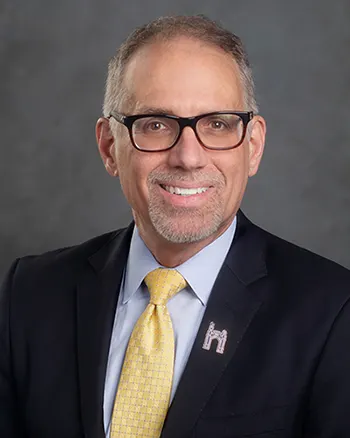
October is avalanche season in the U.S.—avalanches of election campaign messages, that is. Every day I find my mailbox stuffed with colorful postcards in various sizes touting sensational claims about all kinds of candidates for all kinds of offices. And that’s just the beginning, besides mail there are online ads, television, radio, yard signs, and invasions into my Tiktok feed. After a while, I just want to tune it out and for it all to end as soon as possible. It really is too much.
But what none of us should do, as participants and citizens in our American society, is to opt out of participating in the election. I am not suggesting that we read and listen to all the ads (for most, that would be impossible and debilitating). Rather, we take a few simple steps to join in this democracy-defining process.
First, register to vote. It is a critical part of engaging in the selection of our leaders. You can register with a party affiliation or as an independent. It is easy to register on-line or in-person at one of our voter registration drives. If you need to, you can also request an absentee ballot or mail-in ballot. And then—follow through and actually vote, of course!
Second, before you vote, research the candidates. Yes, I just gave you homework, but it could be among the most important assignments you will ever complete. Look and read about the candidates and their positions. Don’t depend on simple short cuts like just their party affiliation. Try to understand the policies and agendas for the candidates—and how well they represent you own values. Many resources are available for review to see where candidates stand on issues.
This will take some effort—The New York Times recent quoted one college student who watched the vice-presidential debate as saying, “This is long, huh?” Maybe. It’s definitely more involved than a tweet or Tiktok! However, with the intricacy of governing a nation as diverse and complex as ours, this is worth your attention. I also encourage you to not focus on just the presidential candidates, but to look at as many other candidates as you can who will appear on your ballot. They all will have some level of influence on our government and society, and some of the local offices might actually have a lot more impact on your life than those in the big national races. And you might find one you like that surprises you.
Third, talk to and listen to others in your peer group and in other groups, especially those with views that may differ from yours. Be civil and courteous, and look for areas of agreement and determine why you might disagree on some things. Politics has always been a volatile subject, so this is not necessarily easy; however, some studies indicate that Americans have become much less willing to talk to others who differ from them politically. That isn’t a formula for successful governance or societal progress. Sure, there might be some friction and heat in a discussion, but if you can keep things at a civil simmer, you might learn something new and avoid a boil over that needs clean up. The are formal groups on campus, such as the Student Government Association, Young Democrats, and Young Republicans who are in a prime position to bring students together to share in discussion. As Mercy institution, I hope we can do this in ways that display our respect and caring for one another—even when we disagree about politics.
I am grateful to be a part of this Misericordia University community that includes a wide spectrum of people and perspectives but who share many common values and who are living a collective campus experience that we call “community realized.” Take that spirit of collaboration, your personal values, and your desire to support the 250-year-old democracy that is the United States into this election season and when you vote this November. Remember the American motto: E Pluribus Unum!
